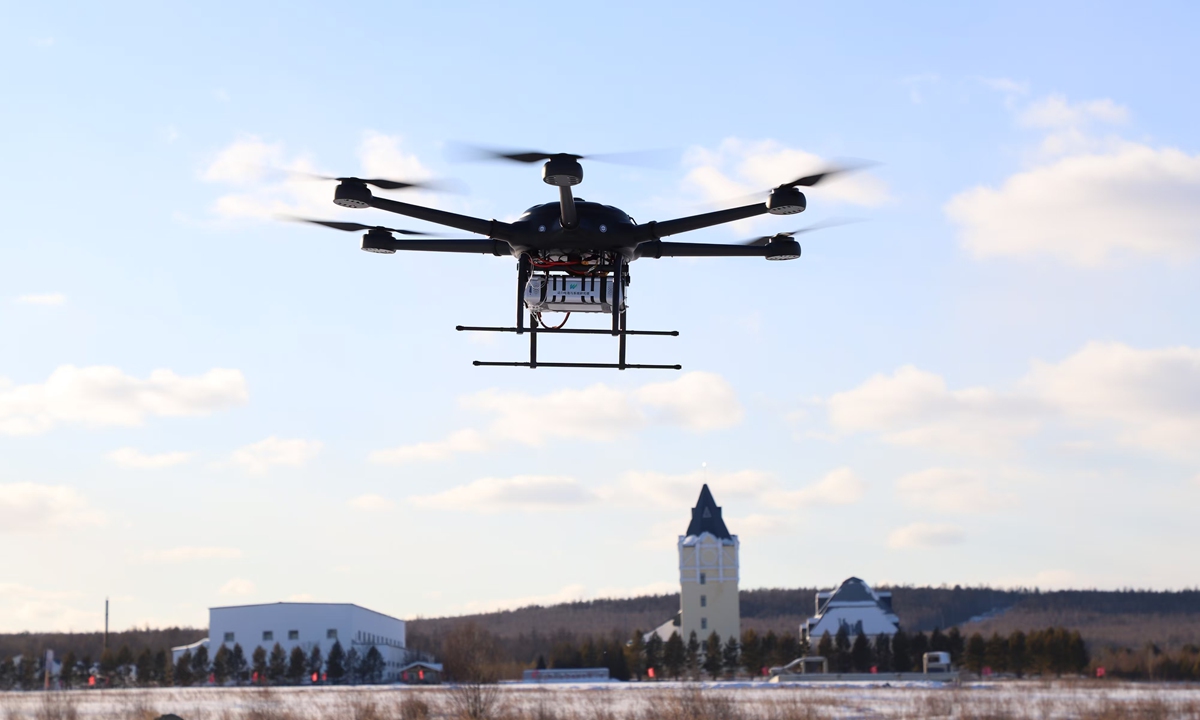
China and EU Strengthen Ties, Pledge Cooperation for Mutual Prosperity
Apr 28, 2025
by Robin Dahl Mar 16, 2025

Photo: Screenshot from the official website of the Dalian institute of Chemical physics Chinese Academy of sciences
A research team from the Dalian Institute of Chemical Physics (DICP) under the Chinese Academy of Sciences, recently announced a significant breakthrough in lithium battery technology, featuring a successful ultra-low-temperature drone test in Mohe city, Northeast China's Heilongjiang Province, the Science and Technology Daily reported on Sunday.
This technology allows drones to function reliably in extreme cold, opening new possibilities for aerial operations in harsh conditions. By maintaining stable performance at -36°C, the battery ensures uninterrupted energy supply, making it a promising solution for critical applications such as polar exploration, border patrol, disaster relief, and logistical transportation, the report said.
During the test flight, the hexacopter drone maintained stable flight and met endurance expectations despite the freezing weather. The drone successfully completed a series of flight tests, including rapid startup, high-altitude hovering, and complex route navigation.
Moreover, battery maintained stable output, with no voltage drops or unexpected power failures in extreme cold, fully validating the battery's exceptional cold-weather adaptability and reliability throughout the flight.
To counteract lithium battery degradation in extreme cold, the team led by Chen Zhongwei, director of Power Battery & Systems Research Center of DICP, innovated by optimizing electrolyte formulations and modifying anode materials, significantly broadening its operational temperature span.
The new battery can consistently deliver power across a broad temperature span from -40°C to 50°C, according to the newspaper report.
Additionally, the researchers improved cold-weather range using adaptive thermal management and low-temperature impedance design. As a result, the battery's endurance loss at -40°C is at less than 10 percent, significantly better than the industry average of 30 to 50 percent, allowing drones to complete missions in frigid, high-altitude regions without frequent recharging.
The successful test flight demonstrates a major leap in high-performance drone battery technology, according to Chen, adding that the research team will continue optimizing battery performance and expanding its applications in extreme conditions.
Chen added that the team will continue to refine battery performance and broaden its applications in extreme environments.

Apr 28, 2025

Apr 11, 2025

Oct 14, 2025

Oct 12, 2025

Mar 09, 2025

Feb 28, 2025

Apr 05, 2025

Apr 12, 2025